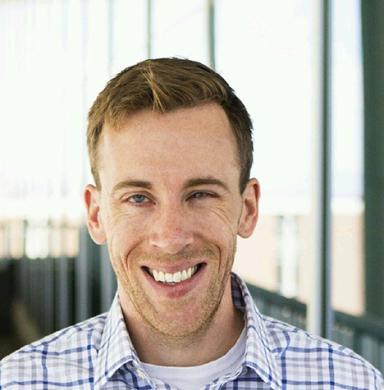CAHSS Professor to Research How Climate Change Can Influence Couples’ Family Planning Decisions

Helping a young couple work through their differences about whether to have children sparked the idea for Clinical Psychologist Nick Perry's research project to study how climate change affects couples’ relationships.
“She was all in, but her future husband struggled with doubts,” explained Perry, assistant CAHSS research professor in the Department of Psychology.
While both were “outdoorsy people, he had a real kind of grief and trepidation around the environment changing so rapidly and negatively, what it would be like to raise kids in such a different physical climate than the one he grew up in and whether his children would get to experience nature in the same way he did.”
Perry, who earned a PhD from the University of Utah, where he specifically studied LGBTQ+ couples and families, found the couple’s dilemma compelling. “I thought, ‘I bet this is affecting a lot of people,’” he said. “My scientist brain kicked in and I started digging for research.”
Perry’s dissertation had focused on how stigma and discrimination relate to sexual orientation and how LGBTQ+ couples manage conflict. Since joining DU in 2021, he has both worked with couples and families and conducted research on LGBTQ+ couples.
Delving into the topic of how climate change influences couples’ relationships and decisions about children revealed that, although it has garnered its fair share of media attention over the years, little has been written in the couples and family psychology field.
“It’s just this untapped research area that I think is really important and will continue to impact people’s decisions related to family planning,” Perry said.
Research Professor Galena Rhoades agrees.
"Dr. Perry is a pioneer in this area,” she said. “Looking at the intersection between climate change and family dynamics and decisions is brand new. This work will provide tools to support families in navigating climate change."
Seeking to glean initial data from a psychological perspective, Perry applied for a few grants and received funding from DU’s Professional Research Opportunity Fund (PROF). The project will involve conducting in-depth interviews with 30 selected couples in the Denver community during winter 2024.
Perry plans to ask them how they think about climate change, whether they talk about it or not and if so, why not, whether they experience stress, anxiety or worry about it and how they handle that together.
The interviews will also address how couples’ climate-change-related stress, anxiety, worry and beliefs affect how they think about whether to have children, and how and geographically where to raise them.
The research will include couples aged 18-40 who are considering having their first child or subsequent children. Half of the participants will come from high socioeconomic status (SES) and half from low SES.
“I suspect that couples who are in some way disadvantaged may be more directly affected by the impacts of climate change,” Perry said.
“More marginalized families in more marginalized communities get hit by climate change harder because of the types of environments they have to live in. I also think that, given the other daily demands that disadvantaged couples have to deal with, they might have less space to think about this kind of abstract topic,” he added.
Perry hopes the study and its preliminary results — expected in late spring or summer of 2024 — will offer a deeper understanding of how socioeconomic status and where you live affects how you look at these questions.
“I hope this study will also give us a sense of how therapists can better support couples in talking about these issues in therapy and open up directions for future research,” Perry said.
He added that the topic continues to factor in the concerns couples in his private practice raise and to surface in discussions with friends and family.
“Part of what’s so hard about climate change in general in the mental health space is that it feels so abstract, large and overwhelming and although things are happening relatively quickly, it’s hard to see the effect of recycling more or riding your bike to work, the immediate impacts of those kinds of efforts,” Perry said.
While he admits that the study sample is small and geographically specific, “we’ll be getting some deep data that I hope will give us an early sense of how couples are thinking about this and working it out that could fuel research on a larger scale.”
He also hopes the study will lead to broader internal collaboration across disciplines and help shed light on the more hidden ways in which uncertainty wrought by climate change influences couples’ and family communication.
“I suspect that most couples don’t actually spend much time talking about climate change even though it’s a very serious factor in wellbeing,” he said. “Understanding how invisible it feels in couples’ daily lives is important, too. Hopefully these interviews will also reveal how absent or avoided it might be. Ultimately if we want to do something about climate change, we have to engage people in talking about it.”






